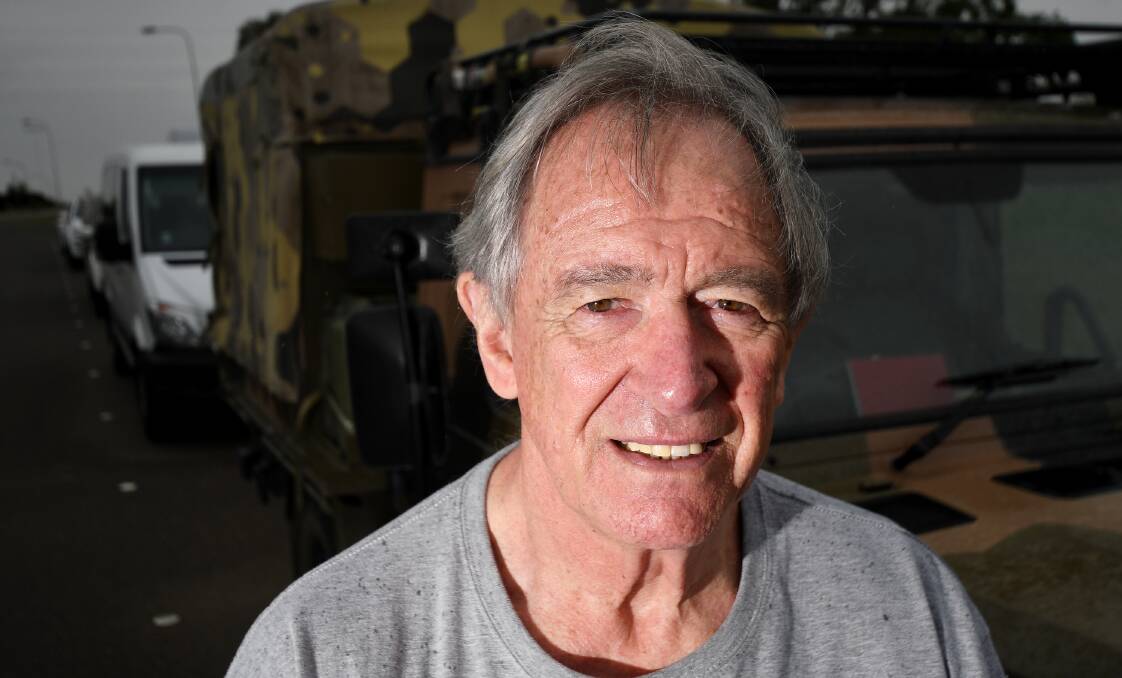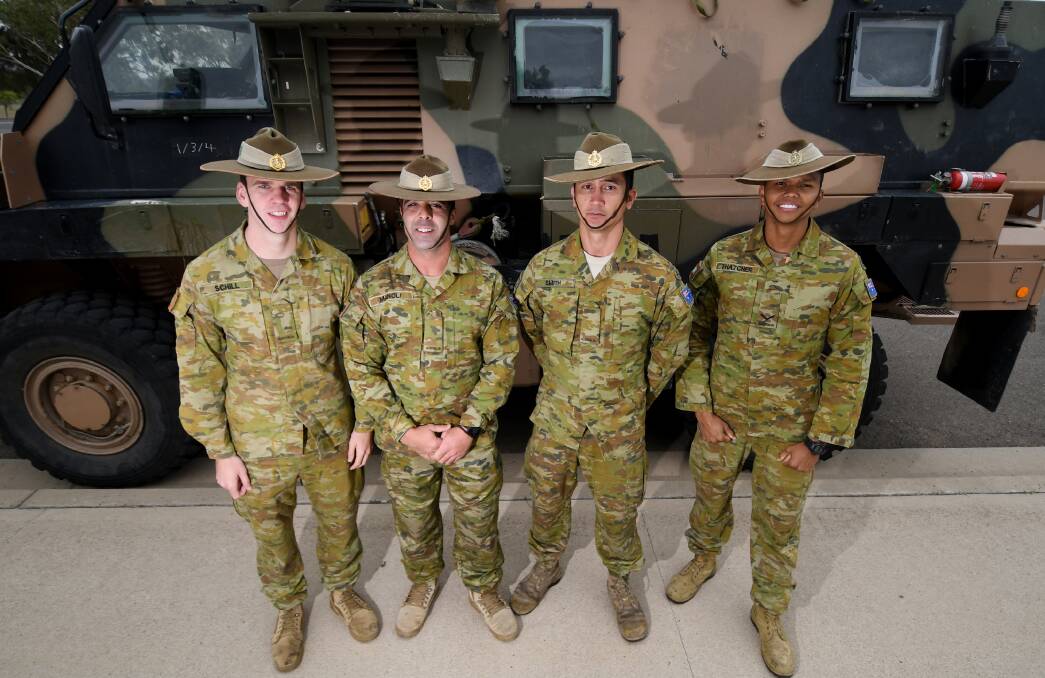
SHORT-TEMPERED, fired from jobs and watching on as his marriage deteriorated, Tony Dell thought he’d encountered a string of bad luck.
Subscribe now for unlimited access.
$0/
(min cost $0)
or signup to continue reading
It wasn’t until the Vietnam War veteran sought help from a psychiatrist forty years later that he realised the poor choices he had made were a symptom of post traumatic stress disorder.
“I didn’t realise, that’s the thing with this illness you think everyone else is strange and you’re normal,” Mr Dell said.
Now, the former Australian cricketer who played in two tests is the founder of Stand Tall for PTS, a not-for-profit that aims to dispel myths about the disorder, increase professional support channels and lobby governments for more funding.
Mr Dell is on The Lightning Bolt II convoy, with first responder and military vehicles supported by the Invictus Games Sydney 2018 that stopped in Tamworth on Thursday for a tour of the AELEC and lunch with veterans.
Post-traumatic stress occurs when people are subjected to highly stressful, emotional or traumatic experiences and can be short term or long lasting.

In some cases memory of the events can be suppressed and symptoms can emerge later on in life – often without the affected person being aware.
Mr Dell said even in his cricketing years he made decisions that were spurred on by PTS.
“I was playing test cricket and all of a sudden I just told the selectors I didn’t want to play anymore,” he said.
“We now know that it was that guilt feeling – because in the army you’re taught that the section or platoon is only as strong as the weakest member and deep down inside me that stuck with me and I felt my colleagues were stepping in for me and I was the weakest member of that unit.”
The convoy has members of Veterans Stand Together on board, who educate veterans and employers about the benefits of employing veterans.
Read also:
After his diagnosis, Mr Dell went on the pension and received a double-knee replacement funded by Veteran Affairs.
As he lay in hospital he wondered what he could do next to help others, as a pensioner he could only work eight hours a week.
“One of the symptoms of post-traumatic stress disorder is becoming a workaholic because it’s the brains way of masking everything,” he said.
”This is the least understood major illness and also the least funded.
“I realised that will all this knowledge I could help others, there were at least 50,000 Australians in Vietnam and probably tens of thousands were struck down with PTSD and didn’t know it, that was the catalyst for it.”
Next the convoy is headed to Dubbo.


